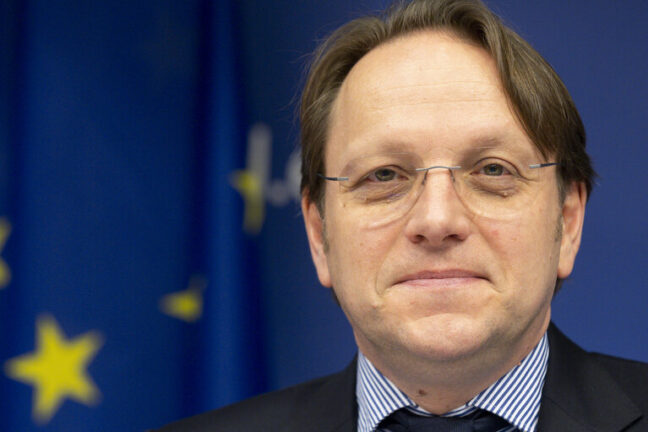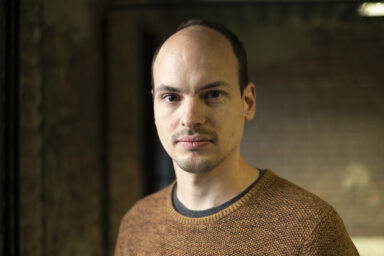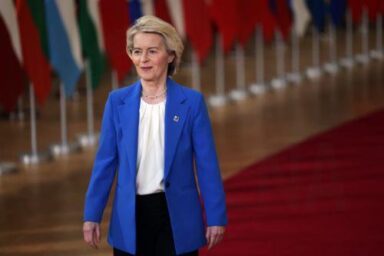Health Commissioner Olivér Várhelyi is calling for a radical rethink of how the EU finances healthcare. He is urging lawmakers to back a broader industrial approach that ties health spending to competitiveness and innovation rather than preserving a standalone programme.
The pitch comes at a sensitive moment. Since the Commission unveiled its proposal for the 2028–2034 Multiannual Financial Framework (MFF) in July, Parliament has pushed back hard against the plan to fold EU4Health into a new European Competitiveness Fund (ECF). Lawmakers fear the merger risks downgrading health as a political priority.
Mr Várhelyi disagrees. “The times we’re living in require us to be much broader than just focusing on health,” he told the Committee on Public Health (SANT) last week. “Just a health programme as a public health programme of the European Union is not effective. We have to have a much bigger and broader approach than before.”
More firepower, less silos
Under the Commission’s blueprint, the ECF will include a €22.6bn window for health and biotech. It will complement the €20bn earmarked for health research in Horizon Europe. Together, Mr Várhelyi says, this gives the EU €42.6bn in firepower for health.
But the real change is structural. Instead of a single health line that can be cut, funding would be locked in behind specific policies. These range from Europe’s Beating Cancer Plan to the forthcoming Cardiovascular Health Plan and antimicrobial resistance work.
You might be interested
“We’re rolling out programmes, rolling out policies, and we allocate the funding to the policy,” the Commisisoner argued. “Once you have a policy running, it’s not going to be possible to make cuts.” He cited the Cancer Plan, which survived despite a 20 per cent reduction in the EU4Health budget, as proof the model protects health priorities better than a siloed approach.
Building a new health ecosystem
Mr Várhelyi also reminded MEPs that EU4Health itself has already been weakened in the current cycle, losing more than one-fifth of its resources. “Just financing operational costs cannot continue,” he said, warning against what he called “conference tourism” rather than tangible results. Embedding health across competitiveness and research, he argued, would make future cuts harder and the overall system stronger.
Just financing operational costs cannot continue. — EU Health Commissioner Olivér Várhelyi
Mr Várhelyi frames the next MFF not just as a numbers game but as the foundation of a new European health ecosystem. At its core are several legislative and policy moves he sees as mutually reinforcing. The pharmaceutical reform, currently under negotiation, must conclude this year to streamline rules, cut red tape, and ensure faster patient access to innovative treatments. Alongside it, the Critical Medicines Act aims to secure supply chains and reduce dependence on third countries. Meanwhile, the Cardiovascular Health Plan will use predictive tools and personalised prevention strategies to target Europe’s biggest killers.
The upcoming Biotech Act is to de-risk private investment, revise clinical trial rules, and break down silos between pharmaceuticals, medical devices, AI, and data. It will be complemented by revisions to the medical device regulation. With capped certification costs and a new “Combine” pathway that allows drug-device products to go through a single authorisation process. All combined, Commissioner Várhelyi argues, these initiatives will allow Europe to move from fragmented efforts toward a comprehensive, innovation-driven health ecosystem.
Prevention as investment
Mr Várhelyi repeatedly stressed that prevention should be seen as an economic investment, not just a cost. Predictive modelling through the European Health Data Space and AI could allow patients to see their future health trajectory, and act early.
“Prevention is always cheaper, better and more effective than cure,” he said, calling the upcoming Cardiovascular Plan a test case for scaling personalised prevention across the bloc.
He also floated new health-linked revenue streams. For the first time, the EU will tax novel tobacco products such as heated tobacco and vapes. He suggested a potential levy on high-sugar and ultra-processed foods. Proceeds would be ring-fenced for prevention and designed to nudge consumer behaviour. “If people take risks, whether they should contribute financially, maybe that is something to look at,” he noted.
Competing globally
The funding rethink is a competitiveness play. Europe’s share of global clinical trials has collapsed from 23 percent in 2013 to 12 percent in 2023, with trial authorisations taking 82 days on average, in comparison to 30 in the US.
“It’s simply not sustainable,” Mr Várhelyi warned. The Biotech Act will propose using AI to halve clinical trial timelines, a move he says could make Europe the first jurisdiction to do so.
We have significantly increased the firepower of the EU health actions with this budget. — Olivér Várhelyi
He also called for leveraging the European Investment Bank alongside Horizon Europe and private investors to multiply the capital available. “What we have in Boston in terms of innovation and investment climate, this is what we should have here in Europe,” he said. “And compared to Boston, we have one player which we have not used. And that is the EIB, the European Investment Bank. So if we want to lower the risks on companies, we should create a combination of financing of public funds from Horizon, private funds, and EIB.”
Thinking differently
For Commissioner Várhelyi, embedding health in Europe’s competitiveness strategy is the only way to secure the scale of funding and innovation Europe needs. “We have significantly increased the firepower of the EU health actions with this budget,” he said. “Because we are now drawing in also other sectors to reinforce our health sectors.”
The challenge will be convincing the Parliament. Lawmakers have signalled they want to preserve health as a dedicated line in the MFF. Mr Várhelyi, however, insists the future lies in thinking differently: treating health, prevention, and competitiveness as inseparable.











